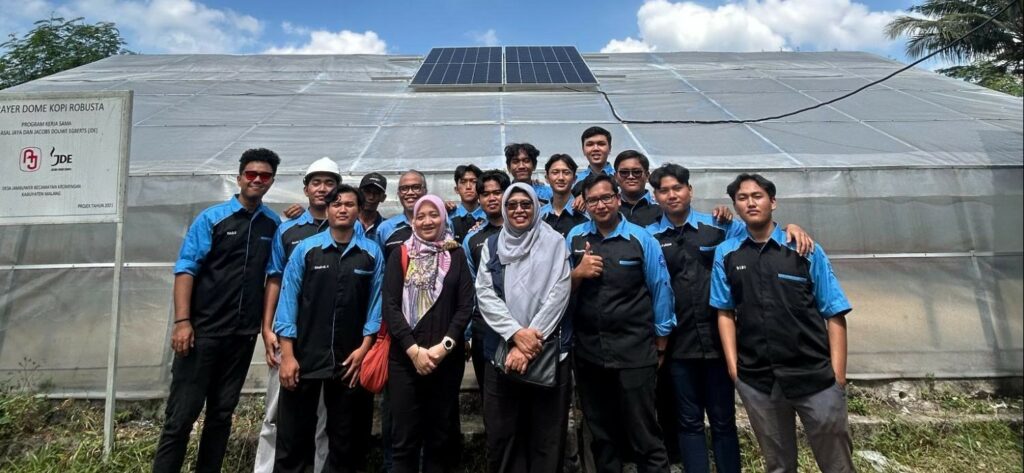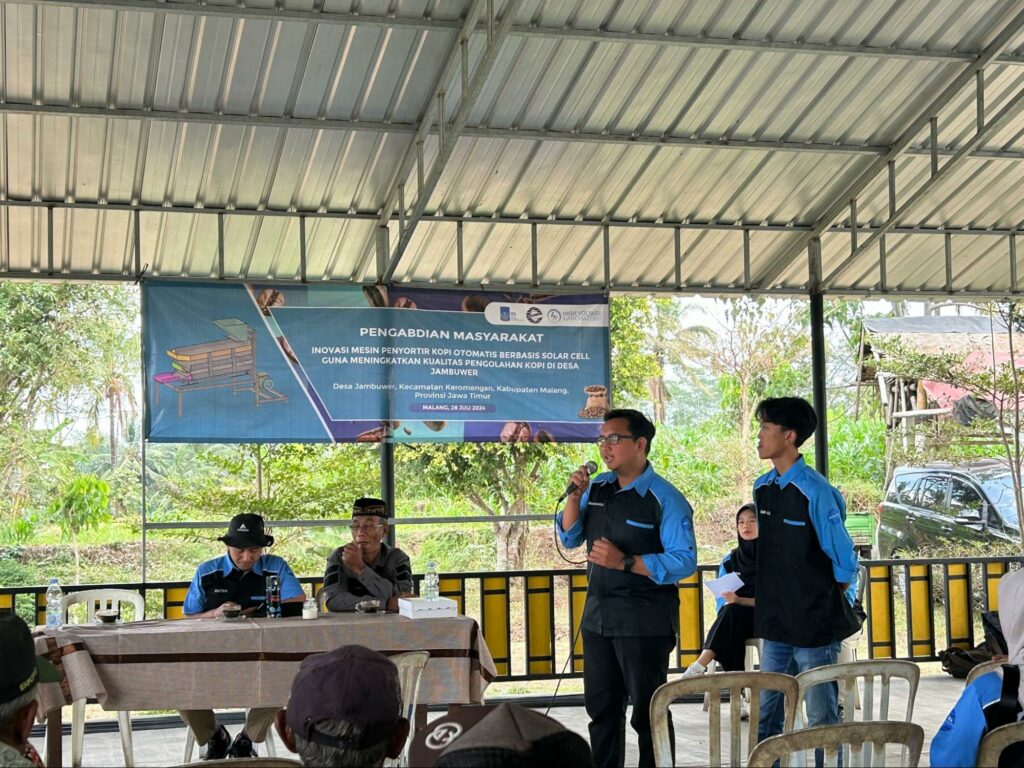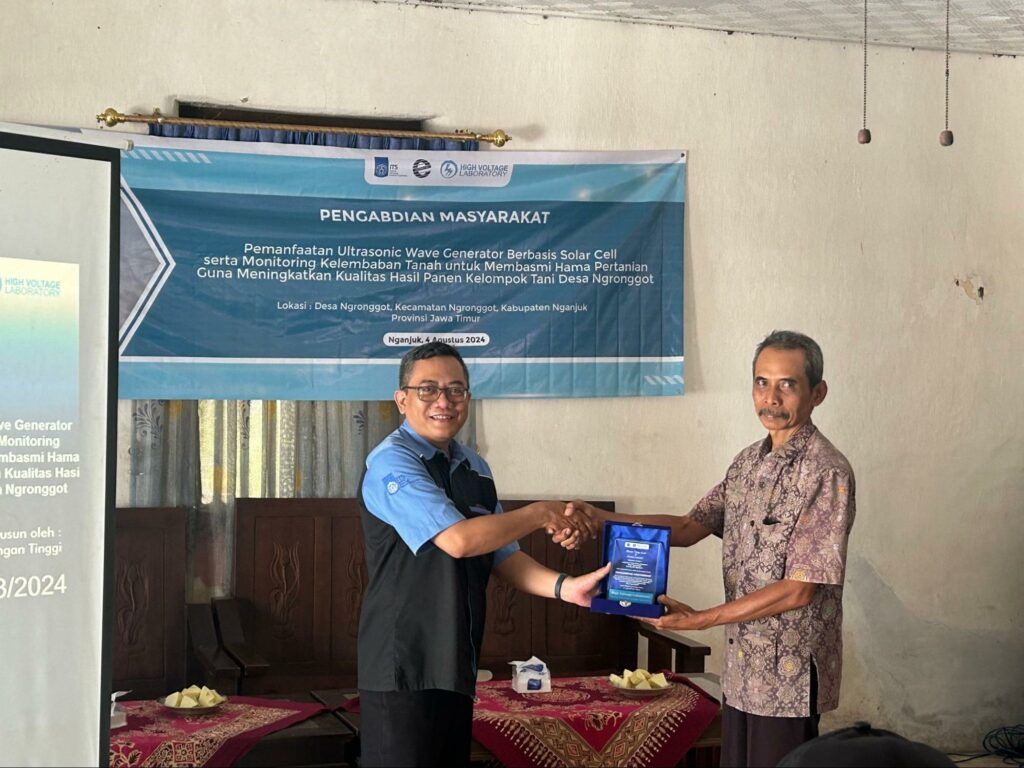KKN ABMAS ITS 2024: ELECTICS Technological Innovation for Agriculture
Faculty
In the face of modernization and global challenges, students from the Institut Teknologi Sepuluh Nopember (ITS) continue to demonstrate their real contribution through the Community Service Program (KKN ABMAS). The year 2024 marks an important milestone for the High Voltage Laboratory, Department of Electrical Engineering at ITS, which successfully delivered technology-based innovative solutions for rural communities.
Khoirul Anam, one of the members of the KKN ABMAS team, led two ambitious projects implemented in two different villages, namely Jambuwer Village, Malang, and Ngronggot Village, Nganjuk. The two innovations presented reflect sensitivity to local community issues while affirming that technology can embrace simplicity and become a catalyst for change.
The first project, a Solar Cell-Based Automatic Coffee Sorting Tool, offers new hope for coffee farmers in Jambuwer Village. With this tool, farmers can not only speed up the coffee bean sorting process, a crucial step in maintaining quality, but also reduce electricity costs by utilizing solar energy. “We want this technology not only to help in terms of productivity but also to raise awareness of the importance of renewable energy,” said Khoirul Anam with enthusiasm.
Meanwhile, in Ngronggot Village, another innovation took the form of an Automatic Agricultural Pest Repellent. Unlike traditional methods that require farmers’ direct presence, this tool works automatically, protecting crops from pest attacks even when the owners are not in the fields. With this technology, farmers can rest easier knowing their crops remain protected all day long. The use of this tool symbolizes how technology does not replace but complements the hard work of farmers.
However, every step towards change is not without its challenges. Choosing partners and determining the location of implementation became a particular obstacle for the KKN ABMAS team. Nevertheless, support from the village community and the well-established relationships made their journey easier. From site surveys to tool installations, close collaboration between students and villagers became the foundation of the project’s success.
Beyond technology, this KKN ABMAS project also brought a shift in mindset. Socialization about the tool’s usage and the importance of solar energy expanded the villagers’ understanding of how technology can be a part of their everyday lives. Moving forward, the ITS KKN ABMAS team will continue monitoring and evaluating the project, with hopes of further development and creating a greater impact in the future.
Latest News
-
Led by FT-EIC Student, Barunastra ITS Wins Grand Champion Title at IRC 2025
The Barunastra Team from Institut Teknologi Sepuluh Nopember (ITS) has once again carved out an impressive achievement by bringing
-
Success Story of IoT Implementation: Salt and Drinking Water Production for Gili Genting Island
Gili Genting Island, Madura, is known for its high seawater salinity, ranking second in the world after the Dead
-
Faculty of Marine Technology – ITS Conducts Collaboration Exploration with Semarang Maritime Polytechnic (PIP)
Faculty of Marine Technology - ITS Conducts Collaboration Exploration with Polytechnic of Marine Science (PIP) Semarang Date: March 11,








